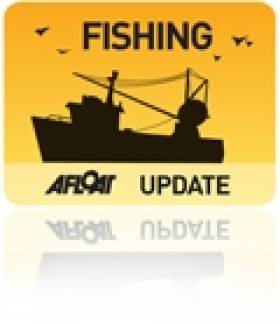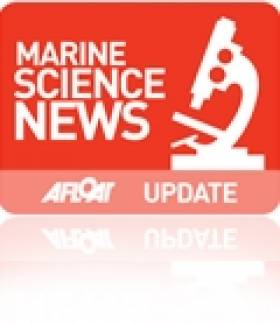Displaying items by tag: Integrated Maritime Policy
EU Fisheries Commissioner Visits Ireland to Discuss Policy
EU Commissioner for Maritime Affairs and Fisheries, Maria Damanaki will visit Ireland this week to discuss reform of the Common Fisheries Policy.
Commissioner Damanaki will speak tomorrow at the Institute of International and European Affairs where she will address Irish stakeholders on the new policy, which aims at preserving fish stocks at sustainable levels by managing fisheries in a responsible, science-based way.
She will also later meet with Minister for Agriculture, Fisheries and Food Simon Coveney.
On Friday she will travel to Galway with EU Commissioner for Research, Innovation and Science, Máire Geoghegan-Quinn, to visit the Marine Institute and participate in a roundtable on maritime policy with representatives of the Irish administration and the Irish maritime sector.
Commissioner Damanaki will also gauge the views of Irish stakeholders on the upcoming Atlantic Strategy under the Integrated Maritime Policy, which the European Commission is currently drawing up.
- EU Commissioner for Maritime Affairs and Fisheries
- Maria Damanaki
- Common Fisheries Policy
- Institute of International and European Affairs
- stakeholders
- sustainable fishing
- fishing
- fisheries
- Minister for Agriculture, Fisheries and Food
- Simon Coveney
- EU Commissioner for Research Innovation and Science
- Máire GeogheganQuinn
- Marine Insitute
- maritime policy
- Atlantic Strategy
- Integrated Maritime Policy
- European Commission
Europe Seeks Public Input on Atlantic Ocean
The European Commission invites on-line public input to explore how the Integrated Maritime Policy (IMP: 2007) could be implemented in the European Atlantic Area.
In the context of the IMP-2007, the Commission is developing strategic approaches to Regional Sea Basins where there is a demand and a perspective of clear value added. Regional (Sea Basin) Strategies have been completed for the Baltic Sea, the Arctic, the Mediterranean and are at a planning stage for the North Sea.
The Commission now invites interested parties in the Atlantic region to input to the development of an Atlantic Strategy.
Such a Strategy would define common priorities; improve regional governance; identify opportunities for smart economic growth and for clustering, synergies and economics of scale. A Regional Strategy would also better focus future European Funding Programmes (e.g. Structural, Regional, Research, Innovation & Competitiveness, etc).
Target Groups: Member States, regional and local authorities, inter-governmental and non-governmental bodies, public organisations, enterprises, civil society and the general public
Contributions may be submitted by using an online questionnaire.
http://ec.europa.eu/fisheries/partners/consultations/atlantic_ocean/index_en.htm






























































